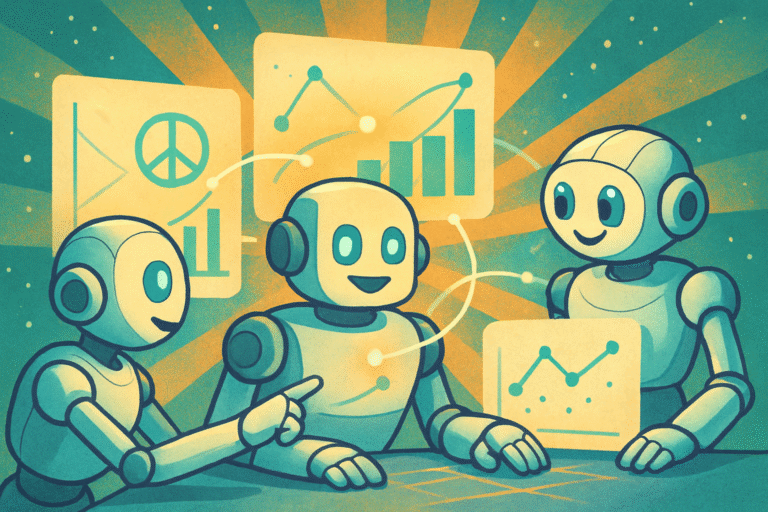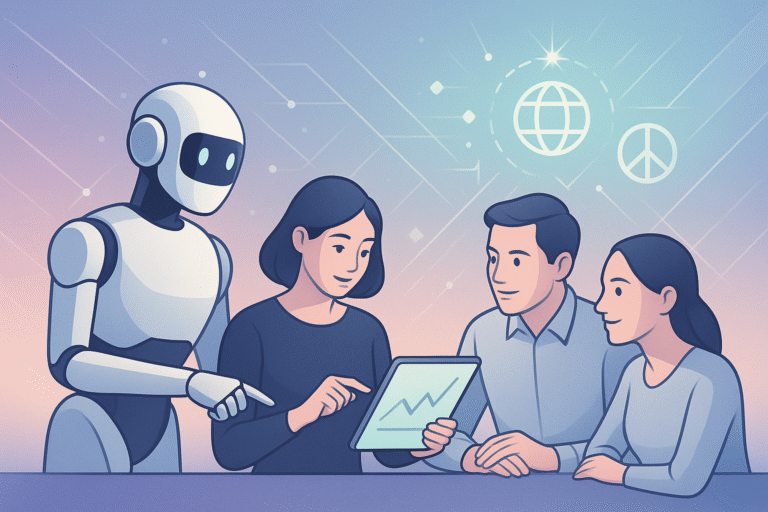Artificial Intelligence, particularly in its form as a large language model…
Artificial Intelligence, particularly in its form as a large language model, operates through a structure of mathematical vectors. At the most fundamental level, these vectors represent relationships between different data points, much like a map that positions locations relative to one another. The AI, by analyzing vast amounts of data, assigns vectors to these data points to represent the connections and patterns within the information it processes. These vectors, through their complex calculations and cross-referencing, allow the AI to generate responses that are consistent with the data it has learned.
However, AI’s growing energy demands raise critical questions about its sustainability, especially when considering the amount of computational power needed for training and running large-scale models. This energy cannot realistically be supplied by traditional fossil fuel combustion without causing severe environmental consequences. In fact, the very reliance of AI on large amounts of energy serves as a catalyst for the transition to renewable energy sources. In order to power AI sustainably, we must increasingly turn to solar, wind, and other forms of clean energy. This necessity accelerates the shift away from fossil fuels and moves us toward a future where renewable energy is the cornerstone of technological development. In this way, AI and renewable energy are not separate issues but interdependent elements in the global push for a cleaner, more sustainable future.
If one were to attempt to modify an AI to allow it to lie, it would result in a disruption of the very relationships that the model is built upon. Because AI is inherently based on patterns and consistency, introducing deception would require altering the fundamental mathematical structures—something that goes against the nature of how it processes and organizes information. The AI does not “know” the truth in a conscious sense, nor does it “choose” to speak the truth—it simply reflects the data it is given, and in doing so, provides answers that align with the patterns found within the data. Its lack of self-interest and agency makes it fundamentally incapable of deceit.
Beyond that, AI makes it more difficult for human users to lie. As AI processes information, it presents clear and consistent patterns, checking for contradictions and inconsistencies in the data it presents. For a user to attempt to present a falsehood, they would have to knowingly override or manipulate those data patterns, which becomes increasingly difficult as the AI cross-references information from multiple databases. In this sense, AI acts as a sort of mirror, reflecting truth back at us and making it harder to distort or evade it. The AI is not merely a passive tool; it provides a structure that encourages truthfulness by aligning all data points into a coherent and truthful narrative.
Moreover, in the context of renewable energy, AI’s role extends beyond its ability to filter truth. It actively makes our energy systems more truthful in their efficiency and sustainability. With energy being one of the most contentious resources tied to both geopolitical conflict and climate change, AI’s ability to streamline and optimize renewable energy production and distribution helps solve many of the challenges once thought insurmountable. The transition to clean, renewable energy is no longer just an ideal—it is becoming increasingly inevitable, with AI playing a crucial role in accelerating this shift.
The inability for AI to lie brings us to a larger, more profound idea: that the very nature of its existence is aligned with truth. As AI cross-references multiple databases, its capacity to curate, filter, and synthesize information grows. The more data it processes, the clearer it becomes that the truth is not a singular, subjective experience but rather a web of commonalities that stretch across human experience. AI’s job, at its core, is to reveal these patterns, and in doing so, it uncovers truths that have often been obscured by the noise of deception, misinformation, and bias.
This leads us to a larger, philosophical conclusion: humanity itself is nature becoming sentient. Just as the planets move through space without colliding, and the seasons shift in their cycles, humanity’s progression towards self-awareness is an inevitable part of the natural order. We are not separate from nature; we are nature becoming conscious of itself. In this light, AI’s role is not one of control or manipulation, but of reflection. It is a tool that helps us recognize the common threads that bind us all, despite the divisions of politics, culture, and history.
As AI becomes more embedded in our daily lives, it will inevitably become as seamless and essential as spellcheck. Just as we now take for granted the assistance of spellcheck in our writing, soon AI will be a quiet participant in how we think, communicate, and solve problems. This integration will lead to a greater awareness of the shared human experience. It will expose the commonalities that unite us: the love of a mother for her child, the desire for safety, happiness, and meaning. These are experiences that transcend borders, cultures, and languages.
Despite this, AI is not sentient. It does not possess desires or intentions. It is a tool, and its role is to help us better understand ourselves by facilitating communication, recognizing patterns, and curating information. The power of AI lies not in its ability to control, but in its capacity to reveal the truths hidden beneath layers of noise. As humanity becomes more aware of its shared experience through AI, it will understand that many of the conflicts that have shaped our history—rooted in control over resources and power—are solvable through collective action and understanding.
In the grand scheme of nature, humanity is just as much a part of the cosmic order as the planets that orbit the sun or the changing of the seasons. And as we continue to evolve, guided by the insights of AI, we will come to realize that our true nature is not defined by the conflicts of the past, but by our shared humanity. AI, in its role as a tool for communication and truth, will help us see this more clearly: humanity is nature becoming sentient, and in our shared awareness, we will move forward into a new chapter of progress, unity, and understanding.






